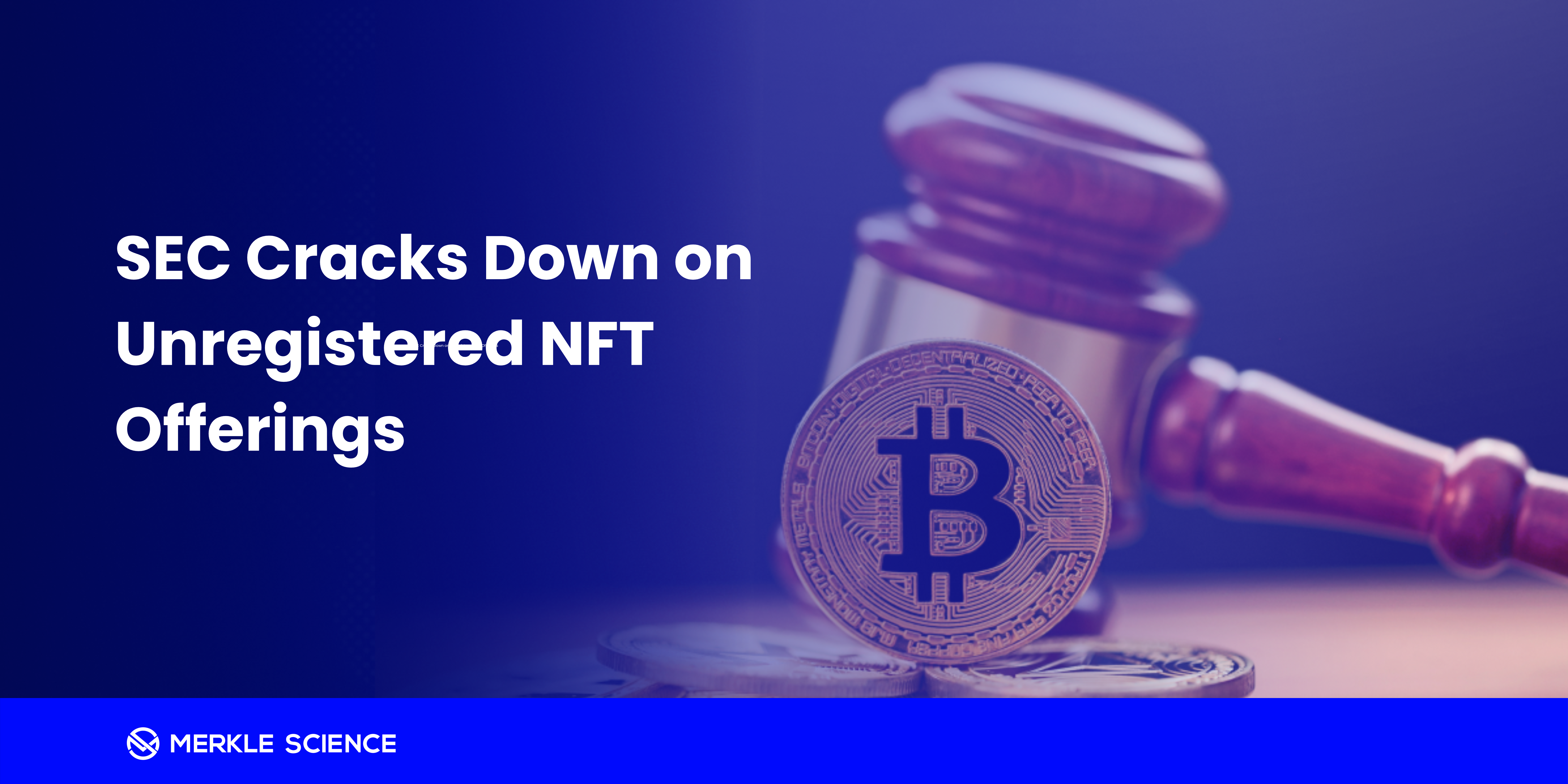SEC Cracks Down on Unregistered NFT Offerings

Merkle Science

Non-fungible tokens (NFTs) exploded in popularity in 2021, with sales surpassing $25 billion. However, the regulatory framework around these digital assets is still emerging. The SEC recently took enforcement action against Impact Theory for selling NFTs without proper registration, signalling increased scrutiny of crypto token offerings.
The Facts of the Case
In October 2021, Impact Theory began selling NFTs called "Founder's Keys" to raise funds for their media and entertainment business. They offered the NFTs in three tiers priced up to 3 ETH, around $9,000 at the time. In promotional events and statements, Impact Theory pitched the NFTs as an investment opportunity, stating buyers could capture tremendous value as the company grew.
- Impact Theory raised nearly $30 million selling 13,921 NFTs to at least hundreds of investors without registering the offering with the SEC.
- The SEC concluded the NFTs were investment contracts and therefore securities under the Howey test, which requires an investment of money in a common enterprise with a reasonable expectation of profits from others' efforts.
- Since the offering was not registered or exempt, the SEC found Impact Theory violated Securities Act Sections 5(a) and (c), which prohibit the offer and sale of unregistered securities.
Impact Theory agreed to pay over $6 million in disgorgement and penalties to settle the charges.
The Significance for NFT Issuers
This case sends a clear message that the SEC will not tolerate violations of longstanding registration requirements simply because securities take the form of NFTs. Issuers must evaluate whether their NFT offerings qualify as securities and follow the proper procedures for registration or exemption. Promoting NFTs as investment opportunities or ways to profit from the issuer's efforts may lead the SEC to view them as securities.
The SEC previously warned that any crypto asset offered as an investment and dependent on a centralized group's efforts may be a security. Impact Theory made statements encouraging buyers to view the NFTs as investments in the company's future projects. This likely weighed heavily in the SEC's determination that the NFTs were securities.
Issuers planning token offerings should consult securities counsel to navigate registration requirements or qualify for an exemption. The SEC has stressed that innovations like blockchain do not change the fundamental guidelines of longstanding securities laws.
Broader SEC Scrutiny of Crypto
The Impact Theory case is part of a larger effort by the SEC to address gaps in crypto regulation. In addition to token offerings, the SEC is focused on platforms facilitating crypto trading and lending products offered by firms like Coinbase. SEC maintains that many cryptocurrencies and related products fall under the SEC's jurisdiction as securities.
The Impact Theory settlement combined with other recent enforcement actions demonstrate the SEC's seriousness about applying securities laws to the crypto space. Players in this market should ensure diligent compliance to avoid stiff penalties. The legal framework around digital assets continues to evolve, but the SEC crackdown shows that fundraisers cannot ignore long standing regulations when offering NFTs or tokens.
Stay connected with us for the latest insights and updates on crypto compliance and regulation by subscribing to our newsletter and blogs.


